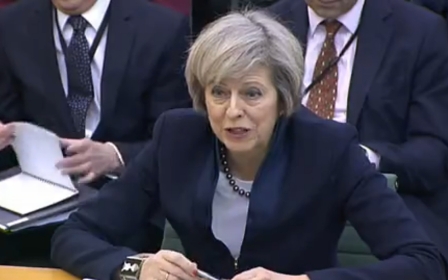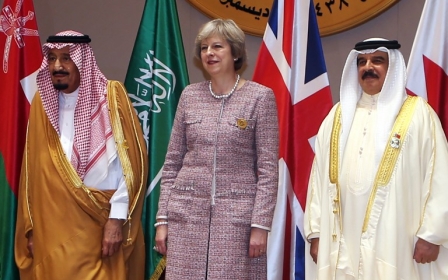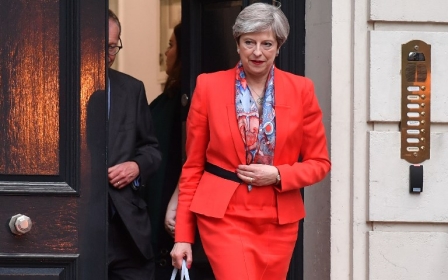What links Brexit, dark money and a Saudi prince?
Theresa May's reliance on the Democratic Unionist Party (DUP) to form a government has prompted fresh calls for the Northern Irish party to reveal the source of a controversial six-figure donation that supported the campaign for the UK to leave the European Union, amid unverified claims the donation could be linked to figures in Saudi Arabia's intelligence services.
The role of the right-wing DUP has risen to prominence in the UK after Prime Minister May’s ruling Conservative Party failed to win a majority in Thursday's general election. She now needs to rely on the support of the Northern Irish party's 10 members of parliament to remain in power.
The £434,000 ($554,00) in pro-Brexit donations was given to the DUP by a mysterious political organisation called the Constitutional Research Council (CRC) ahead of last June's referendum on whether the UK should stay in the EU or leave - dubbed the "Brexit" option.
More than £280,000 ($375,000) was then used to buy a four-page advertising supplement in the Metro freesheet newspaper in mainland Britain - it is not distributed in Northern Ireland, where the DUP operates - urging readers to vote to leave the EU.
The DUP's political opponents have questioned the original source of the CRC donation amid concerns the donation may have breached rules set out by the Electoral Commission, the UK regulator that governs donations and elections.
The CRC is chaired by Richard Cook, a former chair of the Conservative Party in Scotland, and it has emerged that Cook founded a company in 2013 with Saudi Prince Nawwaf bin Adbul Aziz, according to documents at Companies House.
Prince Nawwaf, who died in 2015, was a former director general of the Saudi government's intelligence agency and was the father of the current Saudi ambassador to the UK, website Open Democracy reported. The company he founded in 2013, Five Stars Investment, was dissolved in 2014.
Cook is understood to have rejected the claims as "laughable," and there is no evidence that the money was provided by Saudi intelligence.
The identities of party donors are normally withheld in the Northern Ireland under legislation dating from the Troubles, three decades of nationalistic and sectarian conflict that ended in 1998, but the DUP yielded to growing pressure in February when it revealed that the donation came from CRC.
Electoral Commission rules say that "regulated donees can only accept a donation of more than £500 made to them in connection with their political activities if it is from a 'permissible' donor". Donations above that amount "cannot be accepted" if a donor is impermissible or cannot be identified.
Little is known about the CRC, including its membership or who funds it. Cook has previously said that after helping to fund Brexit the Constitutional Research Council would turn its attention to funding efforts to keep Scotland in the UK.
Cook is also reported to be close to Danish businessman Peter Haestrup, who has repeatedly been linked to a gun-running case described by Indian authorities as "the biggest crime in the country's history".
Haestrup has never been charged with any crimes linked to the case.
The DUP has made no comment on the donation since the election, but last month it said the donation from the CRC "complied fully" with Electoral Commission requirements.
Last month, Sir Jeffery Donaldson, who was the DUP's Brexit campaign manager, told Irish media: "We are satisfied that the Constitutional Research Council is a bona fide organisation and that has been confirmed with the acceptance of the donation and the requirements."
He added: "We are satisfied that the money has been raised in a legitimate way and the Electoral Commission has accepted our return."
The UK government is due this month to start negotiations with the EU on quitting the 28-country grouping, in line with the referendum result.
Middle East Eye has contacted the DUP for comment.
Middle East Eye propose une couverture et une analyse indépendantes et incomparables du Moyen-Orient, de l’Afrique du Nord et d’autres régions du monde. Pour en savoir plus sur la reprise de ce contenu et les frais qui s’appliquent, veuillez remplir ce formulaire [en anglais]. Pour en savoir plus sur MEE, cliquez ici [en anglais].




